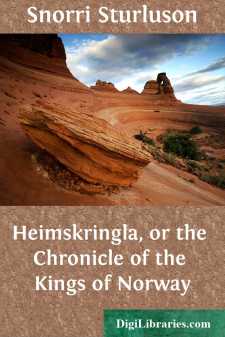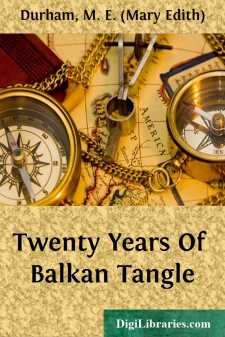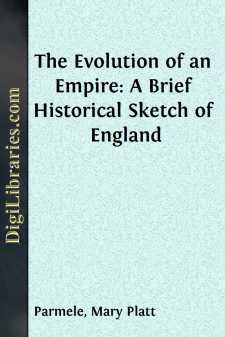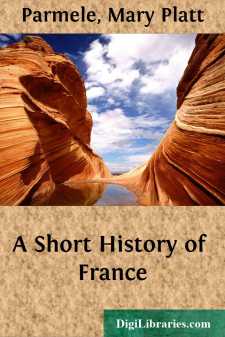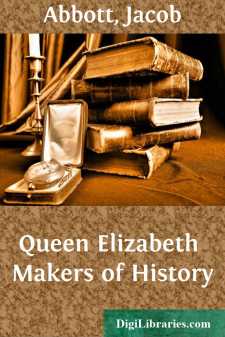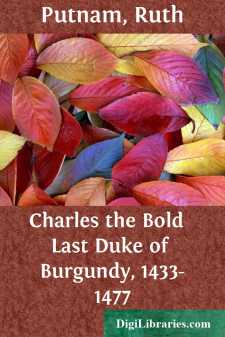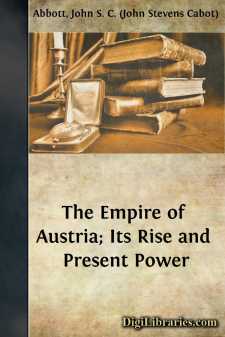History
- Africa 30
- Americas (North Central South West Indies) 50
- Ancient 68
- Asia 58
- Australia & New Zealand 8
- Canada 41
- Caribbean & West Indies 1
- Civilization 20
- Eastern Europe 12
- Europe
- Expeditions & Discoveries 60
- General 77
- Historical Geography 1
- Jewish 9
- Latin America 3
- Medieval 8
- Middle East 13
- Military 248
- Revolutionary 8
- Study & Teaching 5
- United States 353
- Western Europe 56
- World 13
Europe Books
Sort by:
LECTURE I THE SEA CRADLE OF THE REFORMATION Jean Paul, the German poet, said that God had given to France the empire of the land, to England the empire of the sea, and to his own country the empire of the air. The world has changed since Jean Paul's days. The wings of France have been clipped; the German Empire has become a solid thing; but England still holds her watery dominion; Britannia does...
more...
by:
Snorri Sturluson
In this book I have had old stories written down, as I have heard them told by intelligent people, concerning chiefs who have have held dominion in the northern countries, and who spoke the Danish tongue; and also concerning some of their family branches, according to what has been told me. Some of this is found in ancient family registers, in which the pedigrees of kings and other personages of high...
more...
At the Mermaid. Thus Raleigh, thus immortal Sidney shone (Illustrious names!) in great Eliza's days. --Thos. Edwardes. The numberless diamond-shaped window panes of the Mermaid Tavern are twinkling like so many stars in the chill December air of London. It is the last meeting of the Mermaid Club for the year 1596, and not a member is absent. As they drop in by twos and threes and gather in...
more...
TWENTY YEARS OF BALKAN TANGLE CHAPTER ONE PICKING UP THE THREADS It was in Cetinje in August, 1900, that I first picked up a thread of the Balkan tangle, little thinking how deeply enmeshed I should later become, and still less how this tangle would ultimately affect the whole world. Chance, or the Fates, took me Near Eastward. Completely exhausted by constant attendance on an invalid relative, the...
more...
CHAPTER I. The remotest fact in the history of England is written in her rocks.Geology tells us of a time when no sea flowed between Dover and Calais,while an unbroken continent extended from the Mediterranean to theOrkneys. Huge mounds of rough stones called Cromlechs, have yielded up still another secret. Before the coming of the Keltic-Aryans, there dwelt there two successive races, whose story is...
more...
CHAPTER I. One of the greatest achievements of modern research is the discovery of a key by which we may determine the kinship of nations. What we used to conjecture, we now know. An identity in the structural form of language establishes with scientific certitude that however diverse their character and civilizations, Russian, German, Englishman, Frenchman, Spaniard, are all but branches from the same...
more...
by:
Fanny Burney
The astonishing period of political history upon which our days have fallen, robs all former times of wonder, wearies expectation, sickens even hope! while the occurrences of every passing minute have such prevalence over our minds, that public affairs assume the interest of private feelings, affect domestic peace, and occupy not merely the most retired part of mankind, but even mothers, wives, and...
more...
by:
Jacob Abbott
Chapter I. 1533-1536Greenwich.The hospital.Its inmates.Greenwich Observatory.Manner of taking time.Travelers, in ascending the Thames by the steamboat from Rotterdam, on their return from an excursion to the Rhine, have often their attention strongly attracted by what appears to be a splendid palace on the banks of the river at Greenwich. The edifice is not a palace, however, but a hospital, or,...
more...
by:
Ruth Putnam
CHAPTER I CHILDHOOD 1433-1440 On St. Andrew's Eve, in the year 1433, the good people of Dijon were abroad, eager to catch what glimpses they might of certain stately functions to be formally celebrated by the Duke of Burgundy. The mere presence of the sovereign in the capital of his duchy was in itself a gala event from its rarity. Various cities of the dominions agglomerated under his sway...
more...
CHAPTER I. RHODOLPH OF HAPSBURG. From 1232 to 1291. Hawk's Castle.—Albert, Count of Hapsburg.—Rhodolph of Hapsburg.—His Marriage and Estates.—Excommunication and its Results.—His Principles of Honor.—A Confederacy of Barons.—Their Route.—Rhodolph's Election as Emperor of Germany.—The Bishop's Warning.—Dissatisfaction at the Result of the Election.—Advantages...
more...



